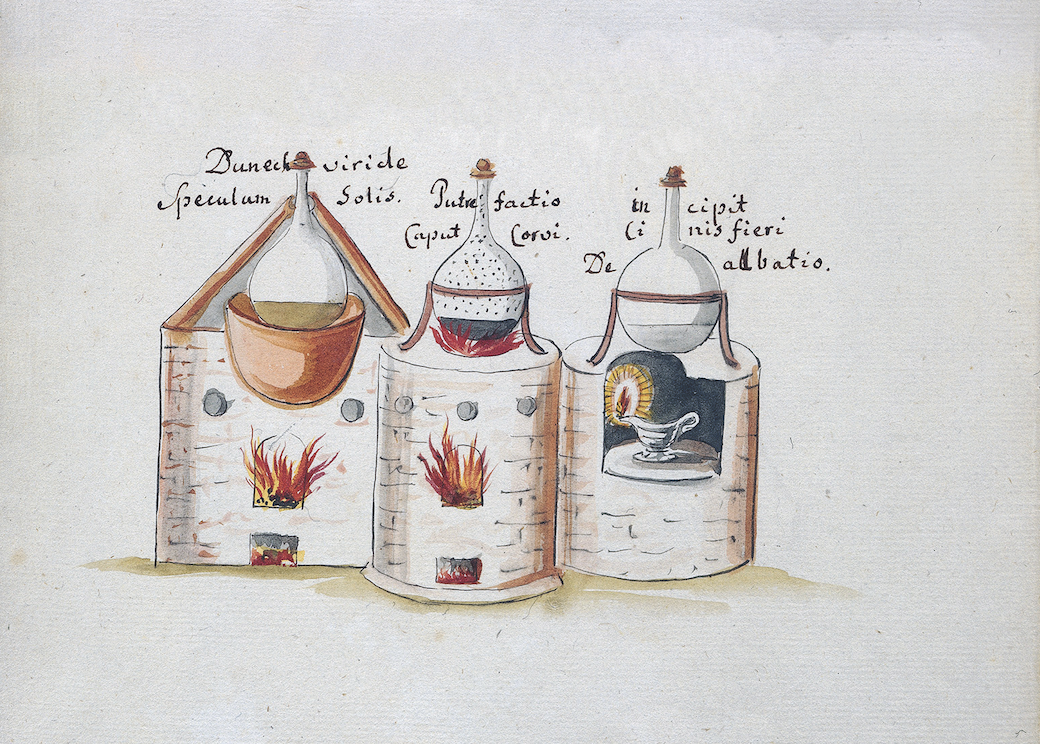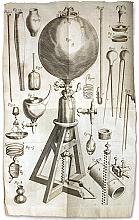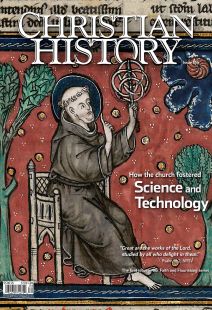Christian History Timeline: Faith and Science

[Symbolic alchemical watercolour drawings—Wellcome collection / [cc by 4.0] wikimedia]
— c. 370 Basil the Great writes the earliest known Hexameron, a commentary on the Genesis account of creation.
— c. 397 Augustine writes Confessions, which includes theological and scientific commentary on Genesis.
— 416 Augustine publishes The Literal Meaning of Genesis.
— c. 530–34 John Philoponus, perhaps the first Christian scientist in history, writes On the Eternity of the World against Aristotle.
— c. 703 The Venerable Bede begins his Hexameron.
— 999 Mathematician Gerbert of Aurillac becomes pope as Sylvester II.
— 1088 University of Bologna, considered the oldest European university, is founded.
— 1096 We have the earliest evidence of formal teaching at what became the University of Oxford.
— c. 1150 Hildegard of Bingen writes Physica and Causes and Cures.
— 1200 University of Paris is officially chartered.
— 1216 Dominican Order is founded; many Dominicans will become leaders in science and universities.
— 1230 John of Sacrobosco publishes De sphaera mundi.
— c. 1235 Robert Grosseteste writes his Hexameron.
— 1249 Albert the Great begins writing his influential commentaries on Aristotle.
— 1267 Roger Bacon sends his Opus Majus to the pope.
— 1277 Bishop of Paris, Étienne Tempier, issues a condemnation of interpretations of Aristotle that fall outside of Christian orthodoxy.
— c. 1290 Thomas Bradwardine, foremost of the mathematicians and philosophers called the “Oxford Calculators,” is born.
— c. 1350 John Buridan develops the concept of impetus.
— 1413 University of St Andrews is founded.
— c. 1450 Metallurgist Johannes Gutenberg develops movable type, enabling mass printing.
— 1543 Nicolaus Copernicus publishes De Revolutionibus, laying out his heliocentric theory.
— 1596 Johannes Kepler writes the first public defense of the Copernican system.
— 1609 Kepler publishes his first two laws of planetary motion.
— 1616 The Roman Inquisition issues its first judgment against Galileo.
— 1617 Kepler begins publishing the Epitome of Copernican Astronomy and sends a copy to Galileo.
— 1619 Kepler develops a musical notation for planetary movement.
— 1630 Galileo finishes his Dialogue and obtains permission for its printing from the Vatican.
— 1633 The Inquisition convicts Galileo of heresy; his sentence is commuted to house arrest, and he continues experimenting.
— 1660 Robert Boyle and others found the Royal Society of London for Improving Natural Knowledge.
— 1665 Boyle publishes the popular Occasional Reflections Upon Several Subjects.
— 1668 Newton builds his first reflecting telescope.
— 1687 Isaac Newton publishes his three laws of motion and the law of universal gravitation.
— 1686 Boyle publishes A Free Enquiry Into the Vulgarly Receiv’d Notion of Nature.
— 1704 Newton combines mathematics and experiments in his particle theory of light.
— 1821 Michael Faraday makes his confession of faith as a Sandemanian; the same year he discovers electromagnetic rotation.
— 1825 Faraday begins his Christmas lectures, which explain science to children.
— 1839 Faraday begins publishing Experimental Researches in Electricity.
— 1851 Edward Hitchcock publishes The Religion of Geology and Its Connected Sciences.
— 1856 James Clerk Maxwell becomes a professor at the University of Aberdeen.
— 1873 Maxwell publishes A Treatise on Electricity and Magnetism.
— 1874 John William Draper publishes History of the Conflict between Religion and Science.
— 1881 Maxwell publishes An Elementary Treatise on Electricity.
— 1896 Andrew Dickson White publishes A History of the Warfare of Science with Theology in Christendom; Booker T. Washington invites George Washington Carver to head the agriculture department at Tuskegee Institute.
— 1906 Carver begins a popular Bible class at Tuskegee.
— 1908 Henrietta Swan Leavitt begins publishing in the field of astronomy.
— 1921 Carver testifies before Congress in support of a peanut tariff; the incident makes him famous.
— 1927 Priest Georges Lemaître proposes what becomes known as the “Big Bang” theory.
By the editors
[Christian History originally published this article in Christian History Issue #134 in 2020]
Next articles
The clergy behind science as we know it
Enlightenment-era pastors didn’t oppose modern science. They helped advance it.
Jennifer Powell McNuttA world of love and light
Christian theology shaped modern science through the work of Johannes Kepler and Robert Boyle
Edward B. DavisSupport us
Christian History Institute (CHI) is a non-profit Pennsylvania corporation founded in 1982. Your donations support the continuation of this ministry
Donate




